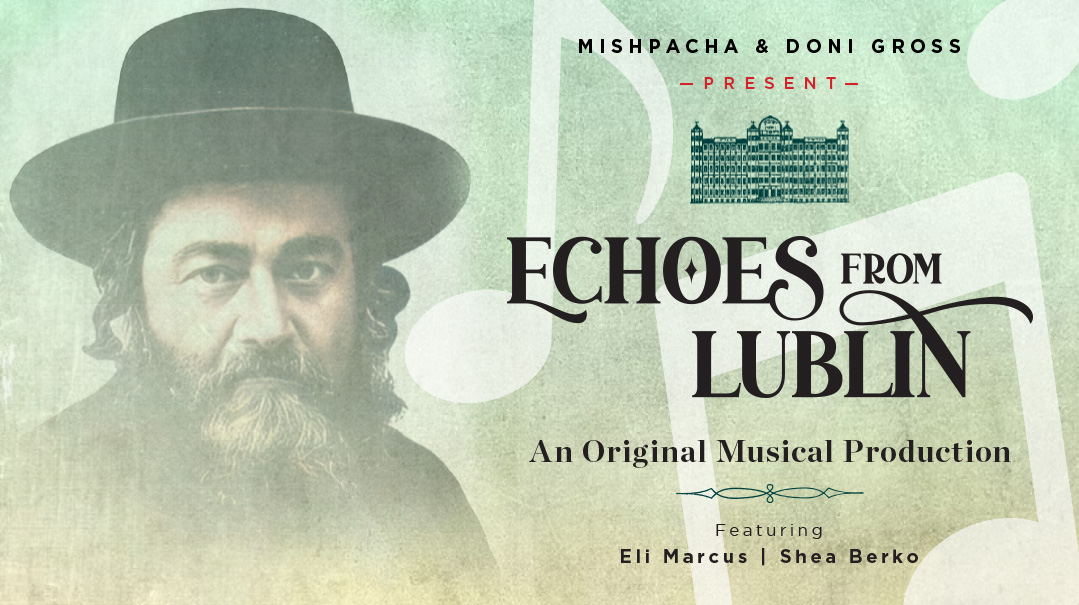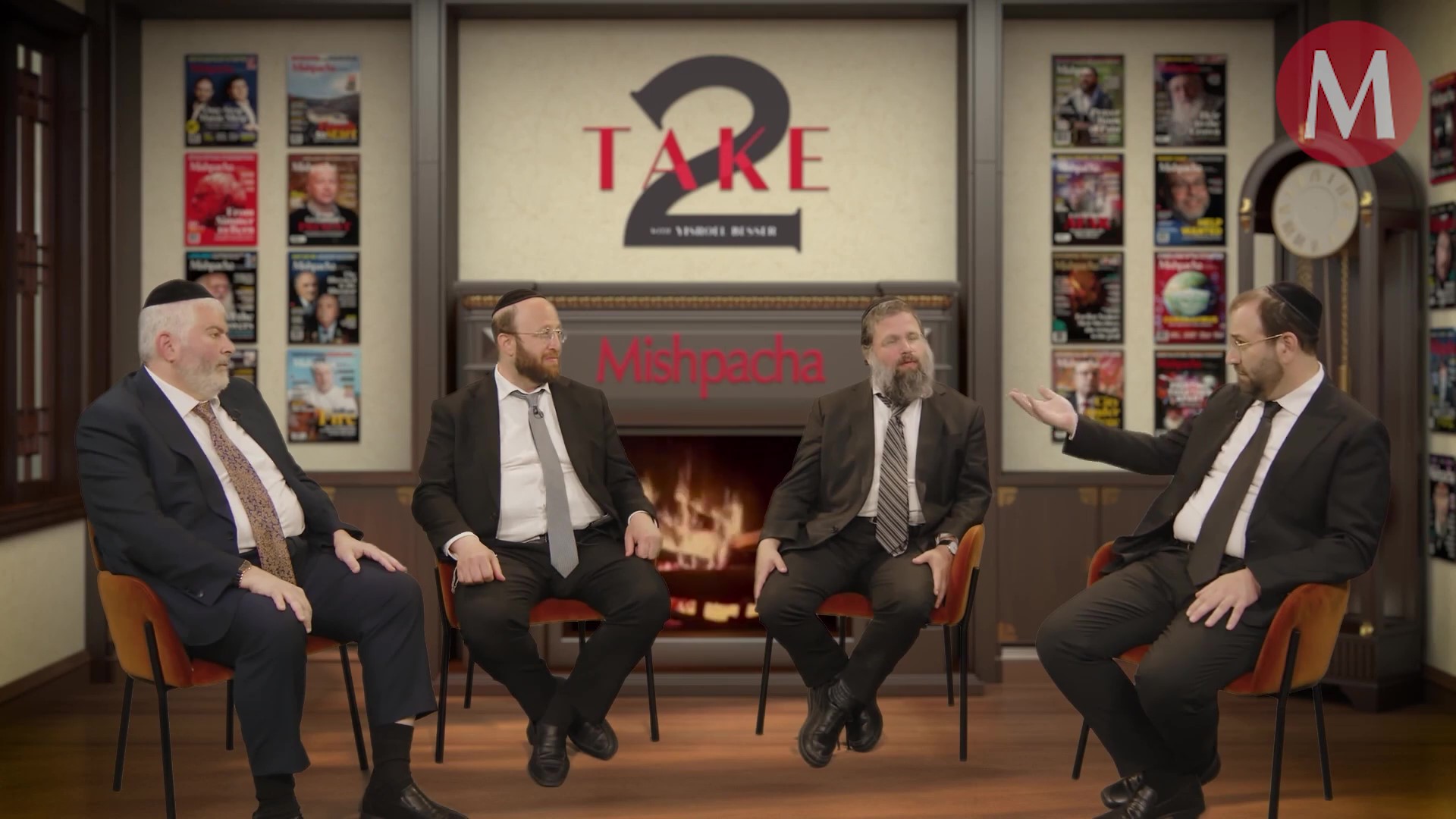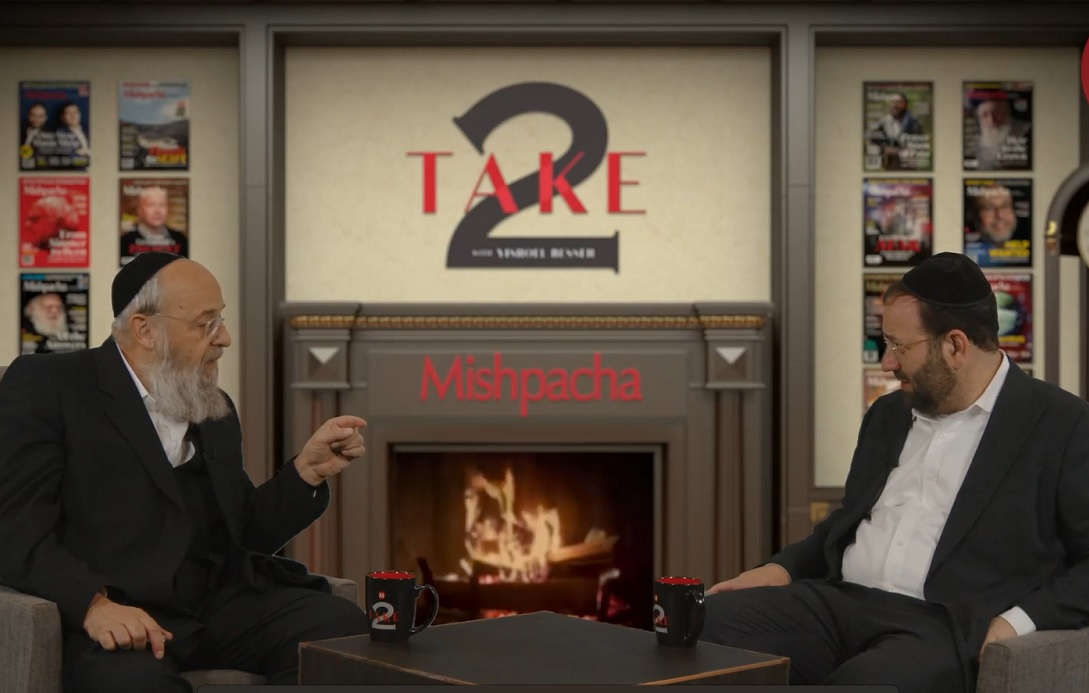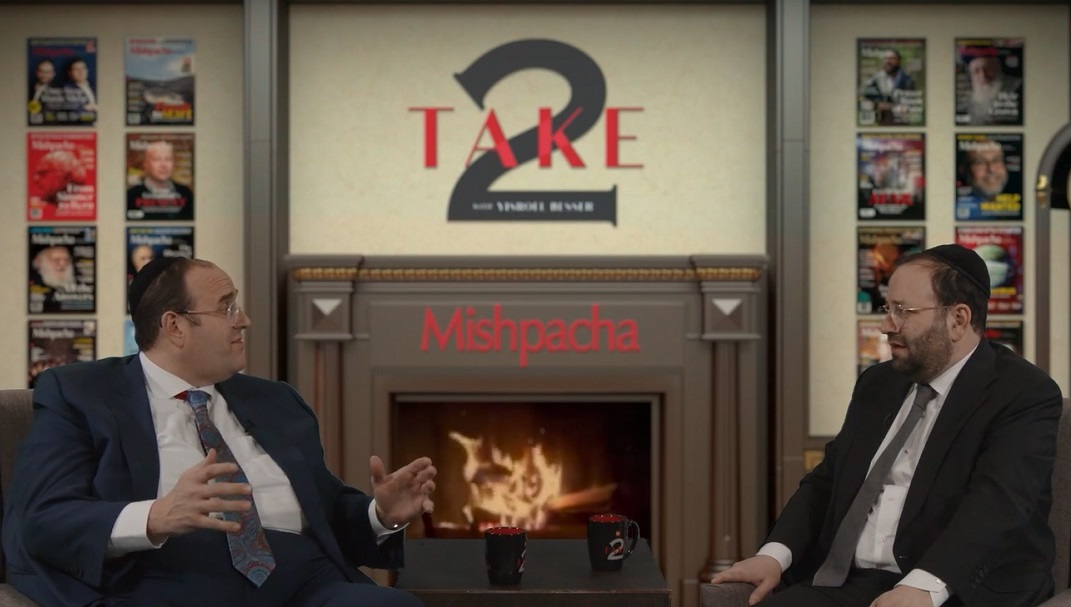Jingle of the Heart
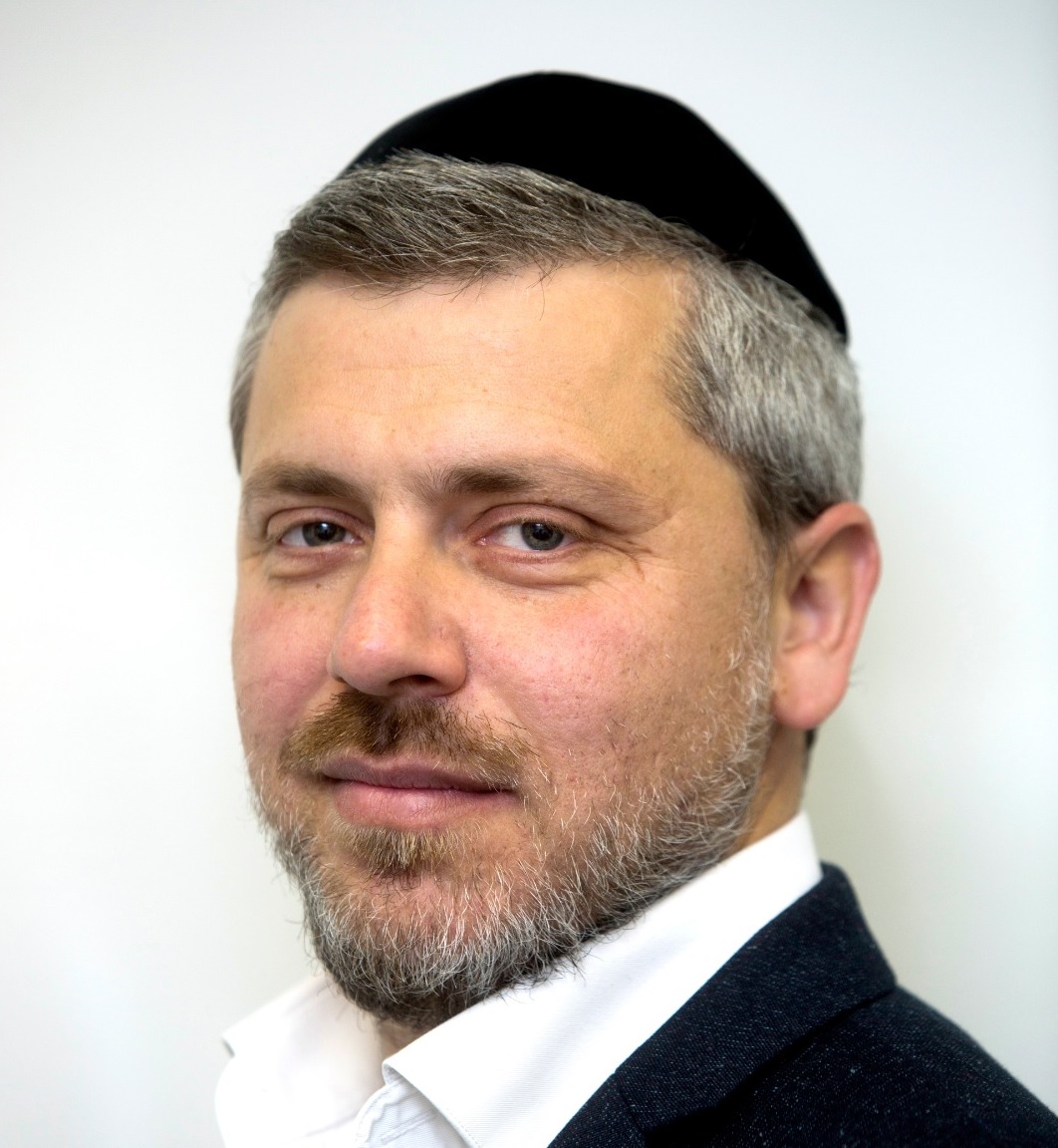
There is no one happier than the person who realizes that he is owed nothing
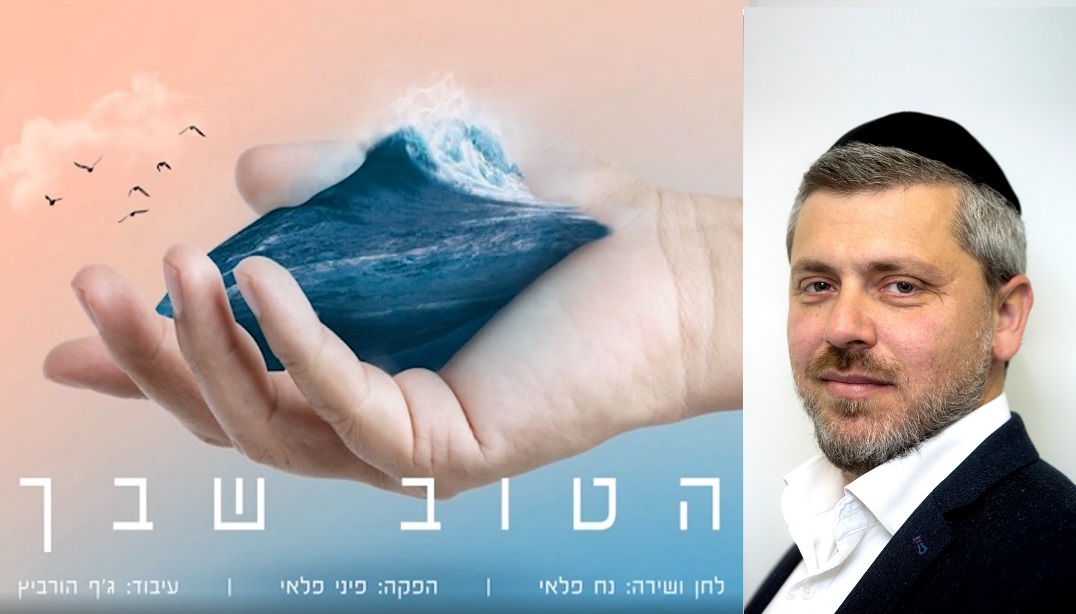
When you finish reading this moving column, there will be a musical gift waiting for you that will drive home the message that is a deeply Jewish concept
It was during Selichos three years ago. I was driving to the Zoharim youth village. On the way, I listened to the story of Mrs. Miriam Gabbai, a life story that kept me riveted. This story was publicized on various platforms, and I will present here just a brief version, with excerpts of her own words.
For ten years, she was barren. Ten years of challenges. And then, “One stormy night, my husband went to sleep and I remained alone. Suddenly, the pain came. ‘Hashem!’ I cried, ‘How long will I stay this way, without children?’ I walked out of the house with three binders containing all the medical paperwork I had amassed over those ten years. I stopped a taxi and said to the driver, ‘Take me to the home of the biggest rav you know.’
“The driver said to me, ‘The biggest rav I know is almost one hundred years old. I bring people to him from all over the world. They come to him from the airport. He’s probably gone to sleep already.’
“And then he stopped next to the home of Rav Shlomo Zalman Auerbach ztz”l. Against all odds, the Rav himself opened the door and said, ‘Yes, ma’am, how can I help you?’ I literally shudder when I relate this. I flash back more than 20 years in time. I began to cry and said, ‘Rabbi, I have a nice house and a wonderful husband, but I don’t have children and it’s been ten years. The doctors’ predictions are bleaker than bleak.’
“The Rav said to me, ‘Ma’am, it hurts me that it hurts you. I feel your pain. But Hashem is not obligated to give you children.’ I did not expect such an answer. Then he continued, ‘HaKadosh Baruch Hu doesn’t owe anyone anything. He doesn’t have to give you health or life, and He doesn’t have to give you children or parnassah. He just doesn’t have to.’
“I was stunned. I thanked him and turned to leave. But then the Rav called me back. He whispered the most amazing sentence: ‘Hashem doesn’t owe you anything. But if you do for other people something that you are not obligated to do — then He will do for you what He is not obligated to do.’”
Mrs. Gabbai decided to do something that she didn’t have to do. She decided to give of her time and her money to bring joy to patients in hospital wards. And then the miracle happened. Within a short time, she was blessed with three children. Today, she has many grandchildren.
And I’m in my car, listening to these words and remembering an original brachah that I received from Rav Shlomo Zalman. It was when my father ztz”l, who was very close to him, asked for a brachah for me. Rav Shlomo Zalman smiled, as he always did, put his hands over my head and blessed me with the sweetest brachah I have ever heard: “I bless you that you should play well, eat well, sleep well, and most importantly, learn well.”
Now, when I hear the brachah that Mrs. Gabbai received, I feel a chill, not only from the miracle, but mostly from the tremendous message. I drive on and think to myself: This is the first time in my life that I’m hearing such a statement: “The Ribbono shel Olam doesn’t owe you anything.”
At first, it makes you bristle a bit. We’re not used to thinking this way. But then I remember the tefillah of Yaakov Avinu, “katanti mikol hachassadim.” This pasuk is the source of the middah of tzaddikim who stand before Hashem like a poor man at the door asking for gifts.
This understanding is so soothing. Because when a person lives with the sense that everyone “owes him” — his parents, wife, children, boss, and ultimately, HaKadosh Baruch Hu — then he is guaranteed to be bitter and sad all the time. He lives in the world like a debt collector. Whatever he has is just a repayment of debt, and whatever he doesn’t have is a big disappointment.
In contrast, there is no one happier than the person who realizes that he is owed nothing. He looks at everything he has and sees that he is surrounded with gifts like a birthday boy. When something is lacking, he can daven and ask for it. But there is no sadness or disappointment, because no one owes him anything.
And there is another part of this story, which serves as an awakening. “But” — if you do what you do not have to do, you will get from Hashem middah k’negged middah, measure for measure, even though He does not owe you anything.
And so, enveloped in my thoughts, I reached the village. Something inside me was roiling. I felt like I had to put this story into a song, so that I’d never forget this message. I got right to work; I got one of the students and hurried with him to the music room. I sat down in front of the keys and began to compose the words: “The Ribbono shel Olam does not owe you anything. But if you do good for another, be mevater, and overcome even when you don’t owe the other one anything – then the Ribbono shel Olam will be benevolent to you, even though He owes you nothing.”
Now, go compose to these words. I tried different styles. Emotion, chassidic, a fast beat – but nothing would stick. The boy who is listening enjoys the words. “Rabbi,” he says, “these words are a jingle. You need to make it like an advertisement. We need the message to penetrate the mind.” I accepted that. Now it was easier. After a few minutes, an interesting tune emerged.
At first, I explored it cautiously. The boys at the youth village enjoyed the idea, and it became a jingle that brings a smile to people’s faces and washes away the bitterness. Hashem owes me nothing. It’s all chesed. A few years passed, and then my brother, Reb Pini, who is also my musical producer, heard it. “You have to record it!” he declared.
We went to Jeff Horowitz’s recording studio and emerged with this song, ready to be heard. Now, I wish to give you this song, dear readers.
Listen to the words well. Internalize that it is all gifts and chesed, and you’ll feel a tremendous joy fill your hearts.
Oops! We could not locate your form.







